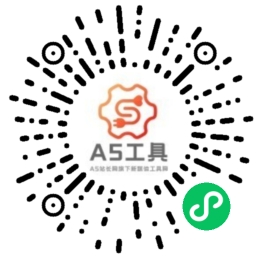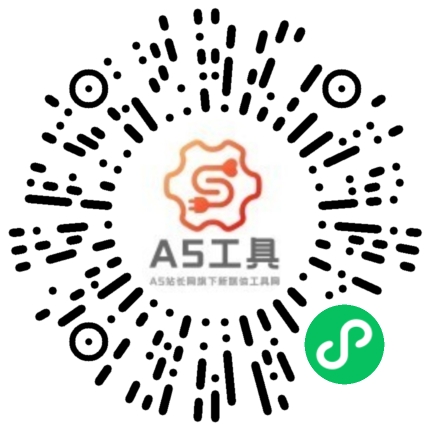声音克隆:数字世界新声浪,科技重塑人声,未来已来
2025-04-30 16:39
**Voice Cloning: The Future of Sound in Our Digital World**
In an era where technology is rapidly evolving, the boundaries of what seems possible are constantly being redefined. Have you ever imagined hearing a deceased loved one's voice again, or experiencing a concert with your favorite artist's vocals, albeit digitally recreated? The concept of voice cloning is no longer confined to the realm of science fiction; it's becoming a tangible reality. But what exactly does "voice cloning" translate to in English? It's the process of replicating a person's voice with remarkable accuracy, transforming it into a digital format that can be manipulated and reused.
Imagine standing in front of a mirror, but instead of seeing your reflection, you hear your voice—or someone else's—echoing back with eerie perfection. This is the magic of voice cloning, a technology that has the potential to revolutionize entertainment, personalization, and even therapeutic practices. But how did we get here, and what does the future hold for this fascinating innovation?
Recent advancements in artificial intelligence (AI) and machine learning have paved the way for voice cloning to become more sophisticated and accessible. Studies show that AI algorithms can now analyze and synthesize speech with an astonishing level of detail, capturing nuances like pitch, tone, and even the subtle inflections that make a voice uniquely identifiable. According to a research paper published in Nature Communications, scientists have achieved a 99% accuracy rate in synthesizing speech that sounds indistinguishable from the original.
But is this just a novelty, or does voice cloning have practical applications? Consider the entertainment industry, where actors and musicians could potentially record once and have their voices used in countless projects, maintaining consistency without the need for extensive re-recording. In customer service, AI-generated voices tailored to match a company's brand could enhance customer interactions, making them more personalized and engaging.
Moreover, the therapeutic implications are profound. For families grieving the loss of a loved one, hearing their voice—even if cloned—could provide a sense of comfort and closure. Imagine a future where voice clones are used in therapy sessions, allowing therapists to create personalized audio responses that mimic the client's loved ones, aiding in emotional healing.
However, as with any powerful technology, there are ethical considerations. How do we ensure that voice clones are not used for malicious purposes, like impersonation or spreading misinformation? Regulations and ethical guidelines must be established to protect individuals' voices from misuse.
As we stand on the precipice of this vocal revolution, the question remains: are we ready for a world where voices can be cloned and manipulated at will? The answer lies in our ability to harness this technology responsibly, ensuring it enhances our lives while respecting the sanctity of the human voice. Voice cloning may be the next frontier in digital innovation, but it's up to us to navigate it wisely.
In an era where technology is rapidly evolving, the boundaries of what seems possible are constantly being redefined. Have you ever imagined hearing a deceased loved one's voice again, or experiencing a concert with your favorite artist's vocals, albeit digitally recreated? The concept of voice cloning is no longer confined to the realm of science fiction; it's becoming a tangible reality. But what exactly does "voice cloning" translate to in English? It's the process of replicating a person's voice with remarkable accuracy, transforming it into a digital format that can be manipulated and reused.
Imagine standing in front of a mirror, but instead of seeing your reflection, you hear your voice—or someone else's—echoing back with eerie perfection. This is the magic of voice cloning, a technology that has the potential to revolutionize entertainment, personalization, and even therapeutic practices. But how did we get here, and what does the future hold for this fascinating innovation?
Recent advancements in artificial intelligence (AI) and machine learning have paved the way for voice cloning to become more sophisticated and accessible. Studies show that AI algorithms can now analyze and synthesize speech with an astonishing level of detail, capturing nuances like pitch, tone, and even the subtle inflections that make a voice uniquely identifiable. According to a research paper published in Nature Communications, scientists have achieved a 99% accuracy rate in synthesizing speech that sounds indistinguishable from the original.
But is this just a novelty, or does voice cloning have practical applications? Consider the entertainment industry, where actors and musicians could potentially record once and have their voices used in countless projects, maintaining consistency without the need for extensive re-recording. In customer service, AI-generated voices tailored to match a company's brand could enhance customer interactions, making them more personalized and engaging.
Moreover, the therapeutic implications are profound. For families grieving the loss of a loved one, hearing their voice—even if cloned—could provide a sense of comfort and closure. Imagine a future where voice clones are used in therapy sessions, allowing therapists to create personalized audio responses that mimic the client's loved ones, aiding in emotional healing.
However, as with any powerful technology, there are ethical considerations. How do we ensure that voice clones are not used for malicious purposes, like impersonation or spreading misinformation? Regulations and ethical guidelines must be established to protect individuals' voices from misuse.
As we stand on the precipice of this vocal revolution, the question remains: are we ready for a world where voices can be cloned and manipulated at will? The answer lies in our ability to harness this technology responsibly, ensuring it enhances our lives while respecting the sanctity of the human voice. Voice cloning may be the next frontier in digital innovation, but it's up to us to navigate it wisely.
这篇关于《声音克隆:数字世界新声浪,科技重塑人声,未来已来》的文章就介绍到这了,更多新媒体运营相关内容请浏览A5工具以前的文章或继续浏览下面的相关文章,望大家以后多多支持A5工具 - 全媒体工具网!
相关资讯
查看更多
AI声音克隆:重塑影视声音艺术,开启观影新纪元!
**影视剧声音克隆:揭秘AI如何重塑影视声音艺术**
在影视剧中,声音不仅是传递剧情的媒介,更是塑造角色、营造氛围的关键。随着人工智能技术的飞速发展,声音克隆技术已经成为影视制作中的一股新势力。那么...

录音笔克隆声音:科技新飞跃还是伦理困境的导火索?
**录音笔克隆声音:科技奇迹还是伦理挑战?**
在科技日新月异的今天,录音笔已不再是简单的声音记录工具。随着人工智能技术的飞速发展,录音笔克隆声音这一前沿应用正悄然走进公众视野,引发广泛关注和讨论。...

新版剪映“声音克隆”功能,让创意音效轻松实现,你试过了吗?
**新版剪映:声音视频的“克隆”奇迹,你掌握了吗?**
在这个追求创意无限、内容为王的时代,视频制作早已不再是专业人士的专属领地。随着技术的飞速发展,一款款功能强大的视频编辑软件如雨后春笋般涌现,其...

剪映克隆声音:一键解锁视频配音新境界,让创意发声!
### 剪映克隆声音音频:解锁视频创作新境界的神奇钥匙
在视频创作领域,声音的重要性不言而喻。一个恰到好处的配音,往往能为视频增色不少。然而,你是否曾遇到过这样的困扰:想要为视频配上独特且贴合的声音...

克隆音色:探索天籁新纪元,下载偶像之声,感受前所未有的听觉盛宴
**探索克隆音色的奇妙之旅:下载那些天籁之音**
在这个数字化飞速发展的时代,音频技术正以前所未有的速度革新着我们的听觉体验。你是否曾幻想过,能够将偶像的嗓音完美复制,或是让自己的声音在虚拟世界中拥...

文心一言声音克隆:打造专属AI声线,个性化语音新时代来临
**文心一言声音克隆:个性化语音服务的未来已来**
在数字化浪潮汹涌的今天,声音作为一种独特的身份标识,正被赋予越来越多的应用场景。从智能音箱的个性化语音助手,到电影、动画中的角色配音,再到在线教育...

声音克隆教程:解锁个性化语音,让你的声音分身成真!
**探索声音克隆的奇幻之旅:解锁个性化语音的教程揭秘**
在这个科技日新月异的时代,声音克隆——这一曾经只存在于科幻电影中的技术,如今已悄然走进我们的日常生活。你是否曾幻想过拥有自己的声音分身,让它...

AI 5秒克隆声音:未来已来,便利与风险并存的科技革命?
**AI 5秒克隆你的声音:未来已至,准备好了吗?**
在这个日新月异的数字时代,技术的每一次飞跃都似乎在重新定义我们的认知边界。今天,一个令人瞠目结舌的新概念——“AI 5秒克隆你的声音”,正悄然...





